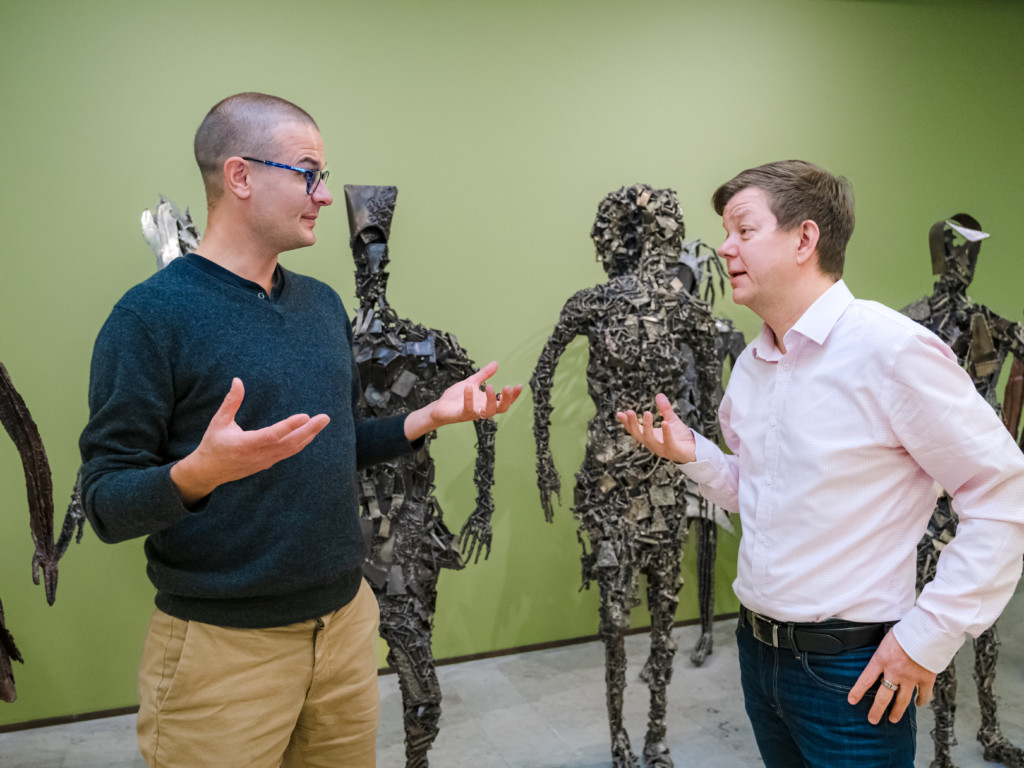Digitalisation is changing the way citizens connect and engage with service providers. The goal is to deliver smoother services for everyday life, but implementing such services requires new ways of data management.
Cities and their digital strategies are often full of buzzwords and technical jargon, but in practice and simply put, the goal of “smart cities” is all about making everyday life easier, and this is what new digital services at best enable.
Teemu Ropponen, director of sales and business development at MyData Global, explains that if it were possible to use one’s own data – for example, when moving to another location – one’s competence profile and professional certificates would be updated in databases when starting a job search. Similarly, streamlining the process of updating parents’ income data, which is used to calculate children’s day-care fees, would lessen bureaucracy for parents and decrease the city’s administration costs. Energy, mobility…the possibilities are endless.
In the human-centric approach to personal data, as driven by MyData Global, personal data is used to deliver new, better services – but individuals have control over their data. In other words, fair rules for the use of data are a key enabler of new, innovative business models, not an obstacle for success.
The point of MyData is that it is desirable to build a different kind of business around citizens’ data, as long as the subject of the data, the citizen, is certain of its fair and transparent use. We train companies to understand exactly this point of view as part of technology development and business transformation.
Data facilitates more advanced forecasting of service needs
Helsinki’s Chief Digital Officer Mikko Rusama describes how the traditional service model of cities can be turned around with novel digital services.
Before, people approached the city, but we want the city to be able to approach people. With the help of personal data, we can anticipate residents’ service needs and prevent problems in advance.
The City of Helsinki relies on the MyData principles in implementing and ensuring digital rights. In addition to Helsinki, MyData Global members include the cities of Espoo, Oulu and Tampere, and companies like Avast, Capgemini, Fujitsu, Futurice, Tietoevry and dozens more. Cities and companies are doing pioneering work; through them, the benefits of the MyData approach impacts a large number of people.
How residents’ data is used and how to do it transparently and fairly is a relevant question for all cities and municipalities.
Mikko Rusama, CDO of Helsinki, explains that by implementing MyData principles, cities and companies are more transparent in how they’re using residents’ personal data, and citizens gain more power over how their data is used. With this fair use of data, it is possible to both develop smoother services than currently, and increase residents’ decision-making power on how their data is used.
We want Helsinki to act as an international trendsetter as we build a more human-centric internet.
- MyData Global is an international nonprofit organisation, headquartered in Finland.
- Members: more than 100 companies, cities, and other organisations, and nearly 400 individuals around the world (50+ countries).
- MyData Global is an internationally recognised connector of expertise, with over 3500 people in the community.
- MyData community works heavily in the space of smart cities, providing insights, guidance, network and identity, to experts and organisations
- With the help of MyData, the know-how of cities and companies is developed in the H3C – the Human-centric companies and cities project funded by the Helsinki-Uusimaa Regional council.
- Cities active in MyData include e.g. Helsinki, Espoo, Tampere, Turku, Oulu, Lyon, La Rochelle, Rennes, Seoul, Amsterdam and many others
This blog post was originally published as an article in Helsinki Sanomat, Finnish daily newspaper (ref) and has been adapted for MyData Global blog. Original text by Juha-Pekka Honkanen and Teemu Ropponen. Photo by Joona Raevuori.

